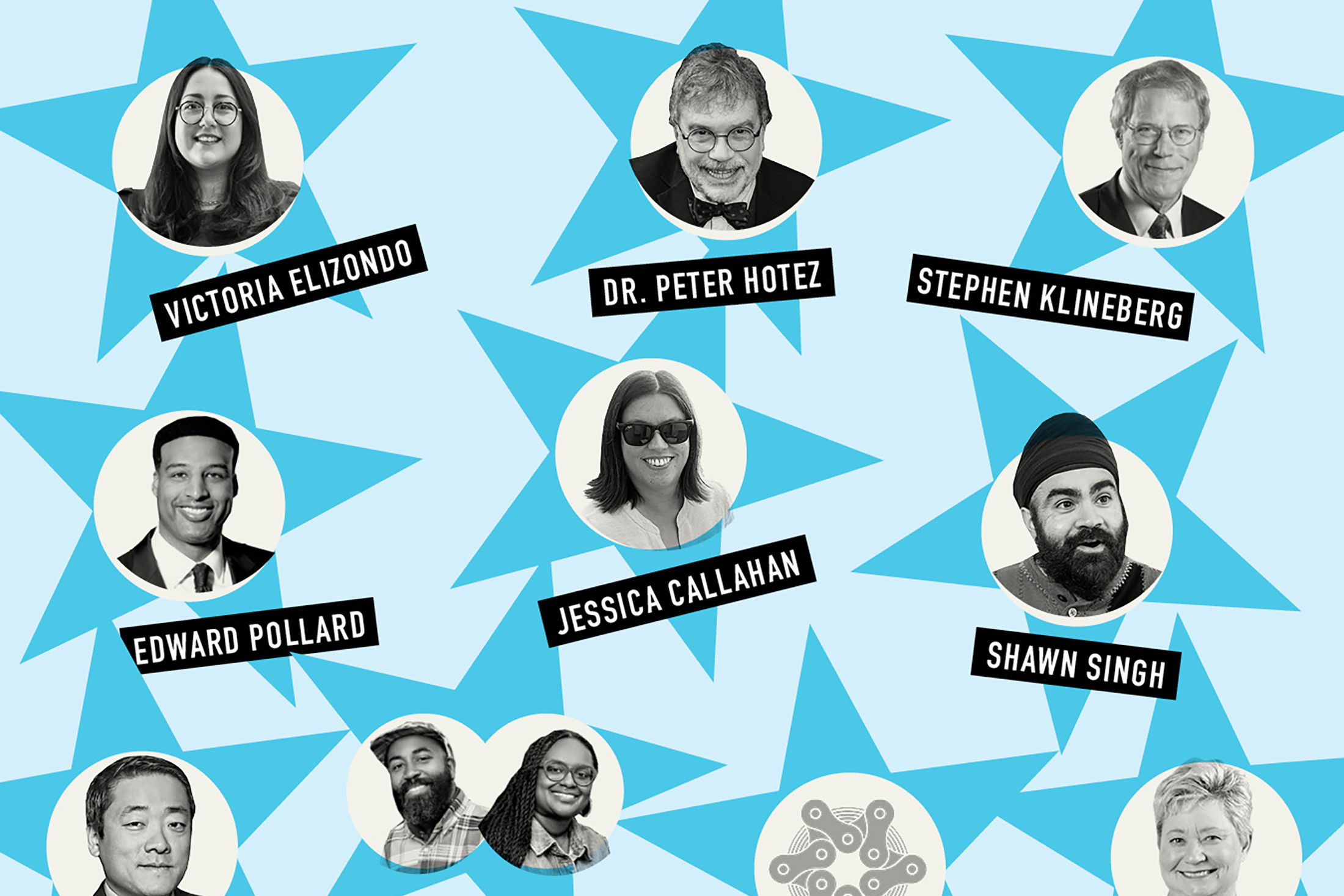Glasstire Founder Rainey Knudson Explains Why She's Stepping Down

Rainey Knudson
Image: Courtesy of Rainey Knudson
In 2001, after spending countless hours crisscrossing Texas in her car to look at art, Rainey Knudson had an idea. Why not start a website, accessible to anyone, that covered art throughout the state? And not just in the big cities, but in places like Midland, Marfa, and Canyon?
That website, Glasstire, is now the oldest online-only art magazine in the country, and after 18 years at its helm, Knudson is stepping down.
As part of her retirement, Knudson organized a “farewell tour” of Texas to talk about the history of the site, her philosophy of art criticism, and to rant about Facebook. Her last stop on that tour was earlier this week at the University of Houston. Houstonia caught up with her beforehand to conduct an exit interview and find out what the future holds for both Glasstire and herself.
Eighteen years is a long time!
I can't believe I did it this long. It was never ever my intention to work on Glasstire for so long, and it's in a really good place to sort of fly free at this point. It's finally big enough. It's finally established enough, it can completely survive without me, which is a really good time for a founder to leave. When I started Glasstire, I was 27. I'm 46 now. It's time. Part of the job, the work of being really attentive to the art scene, that evolves over time for most people. It certainly has for me. And in some ways it's a young person's job.
Your leaving doesn’t sound very bittersweet.
It's probably more sweet than bitter. I feel it's definitely time. Over the years, there have been many times when I have thought, what am I doing with my life? Oh my God, I've got to quit. I need to go get a job in the oil sector or to go do something else. Because it's been hard—really hard at times. I feel like I'm leaving Glasstire in a really strong state. For example, we just recently launched a bilingual initiative, and we worked for a couple of years to get that money pulled together. It's starting to move in a different direction, and it's exciting and good and healthy and strong. And I'm like, yay, bye! My last day is May 31.
How did you come up with the idea for the site?
Before Glasstire I did a print magazine, which I started when I was 25 years old. We had an edition in Houston and an edition in Dallas. It was called Canvas, and it was terrible and very forgettable. If anybody has a copy, I hope they burn it cause it was really bad. That was the first time I really started driving around looking at art. I had grown up in Houston and then gone to graduate school in Austin, but I didn't know Dallas and Fort Worth really. I didn't know San Antonio. I started to see the art scenes in these other cities and realized how interconnected and cross-pollinating they were, but there was no easy way to find out what was going on statewide. So I thought, we'll do a website and not have to print all this paper and ship it, which was very expensive. One of the most expensive parts of producing a magazine is the distribution of all of this heavy dead tree material. And then how do you get it into people's hands?
People always ask about the name. The name is an homage to Robert Rauschenberg, who was originally from Port Arthur. I had seen this sculpture of his in his retrospective in 1998 in Houston and there were these sculptures that were tires made of glass. I was driving a lot and long-distance driving is a special kind of contemplative experience. I say now that I was driving great distances at great speeds with great clarity. And so I named the site Glasstire.
Was there ever a time when you thought the site might not be sustainable?
We never really had a financial crisis just because I kept an eye on the till, always. I was cheap and wouldn't spend money. But the problem with not spending money is it becomes really hard to develop great content and do certain things that require money. There was never a time when it was like, Oh my God, this isn't sustainable. It was just like, How much pain do you want to bear, Rainey? I had a second job well into Glasstire. It wasn't until about seven or eight years ago that I quit having a second job. We would never have made it if we were not a nonprofit. We've had some advertising, but it's never been more than a third of our budget.
As print media declines, what role does the site plays in maintaining coverage of the arts?
When I founded Glasstire, every single daily in the state had a full-time art critic. The Houston Press never had an issue that didn't have an art review. And obviously that doesn't exist anymore. So Glasstire has become the voice of art in Texas in many ways. Yes, there are other people who do arts journalism, but I’ve seen many, many smaller publications, both print and online, come and go through the years. Which is a testament to the fact that it's just very hard. If you're not in it as a labor of love and you don't want to keep it going, you're going to give up.
Somebody asked me recently, does Glasstire then have an obligation to try and reach a more generalist audience? The argument could be made that Glasstire is reaching an insider audience of niche people who care about art already. This is something we wrestle with—how generalist do we want to be? We don't want to dumb it down. But it’s true that people are now getting their specialized content from specialized publications from like Glasstire.
A lot of that decline has been fueled by things like Facebook and clickbait.
One of the things that I've done for myself is quit Facebook. It took me a couple of tries. It was very difficult to do, because Facebook is so addictive and in many ways is a very useful tool. But the downsides of Facebook far outweigh the upsides of Facebook, for me. My life is much calmer and happier and saner without Facebook in it.
I admit that Facebook is just a platform and a communications technology like the telegraph or radio or television or even the phone, which were technologies that made people very nervous in the old days and we got used to them. But I think the power that Facebook has is unlike anything we've seen, and it's deeply disturbing to me.
I found myself starting to generate content for Facebook. I found myself thinking, “Oh, that would be a good Facebook post,” and when I was really active on Facebook, I was creating all of this frankly dynamite content for free for those motherfuckers and lining the pockets of Mark Zuckerberg’s hoodie with my education and my talents and my creative thinking. For free. For nothing else than these little ego pats of people liking my post. I don't need that. It doesn't pay the bills—it pays his bills. That's what's really gross, is everyone just giving themselves away for free. Ick.
What’s next for you?
My writing oftentimes has had to take a back seat to keeping the ship afloat and being the executive director and publisher and making sure everybody got paid. I have a book that I want to write, which is scary to even admit, but I have to suck it up and not be a weenie and admit it. So I'm going to be working on some writing and some side projects before I kind of leap into the next big thing.
I care passionately about Houston, and I'm interested in work that has more of a direct social impact. I'm interested in researching incarcerated populations, looking at higher education. I’m interested in doing something that's ambitious and that has a big impact and that makes the world a better place.




